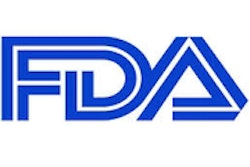
Based on what it calls “sound science and a comprehensive review,” the U.S. Food and Drug Administration is taking several important steps today regarding food from genetically engineered (GE) plants and animals, including the first approval for a genetically engineered animal intended for food, AquAdvantage Salmon. The agency is also issuing two guidances for manufacturers who wish to voluntarily label their products as containing ingredients from GE or non-GE sources: a draft guidance on labeling foods derived from Atlantic salmon, and a final guidance on foods derived from GE plants.
The FDA has approved AquaBounty Technologies’ application for AquAdvantage Salmon, an Atlantic salmon that reaches market size more quickly than non-GE farm-raised Atlantic salmon. The FDA regulates GE animals under the new animal drug provisions of the Federal Food, Drug, and Cosmetic Act, because the recombinant DNA (rDNA) construct introduced into the animal meets the definition of a drug. In this case, the rDNA construct introduces a trait that makes the AquAdvantage Salmon grow faster.
“The FDA has thoroughly analyzed and evaluated the data and information submitted by AquaBounty Technologies regarding AquAdvantage Salmon and determined that they have met the regulatory requirements for approval, including that food from the fish is safe to eat,” said Bernadette Dunham, D.V.M., Ph.D., director of the FDA’s Center for Veterinary Medicine.
Editors Insight: Regardless of where one stands on genetically-modified foods, this ruling holds major significance for the food industry. The FDA has given its seal of approval to certain food products and that approval brings a certain amount of credibility.
The decision came in response to a Center for Food Safety petition to require that genetically engineered foods be labeled as such. The FDA claimed in its comments that the petition did not provide evidence that foods derived from genetically-engineered plant varieties differ from those derived from non-genetically-engineered varieties in any meaningful way, according to Supermarket News.
Which is not to say there is a clear path for the food industry on using GMOs. GMOs remain one of the most controversial consumer issues for the food industry. National food companies have committed to not using GMOs in reaction to public concerns.
Food supply chain service players still have to be aware of GMO concerns and why they remain controversial. Scientists reaction to the FDA ruling has not been uniform.
The Coalition for Safe Affordable Food and the Grocery Manufacturers Association have both applauded the FDA’s decision. 11-20-15 By Elliot Maras

















